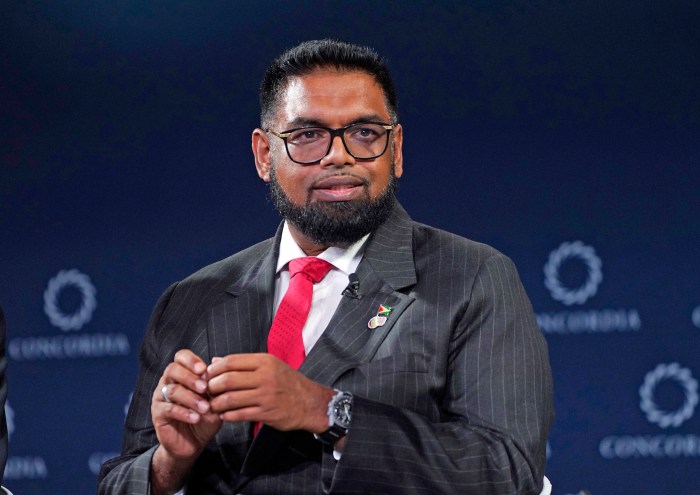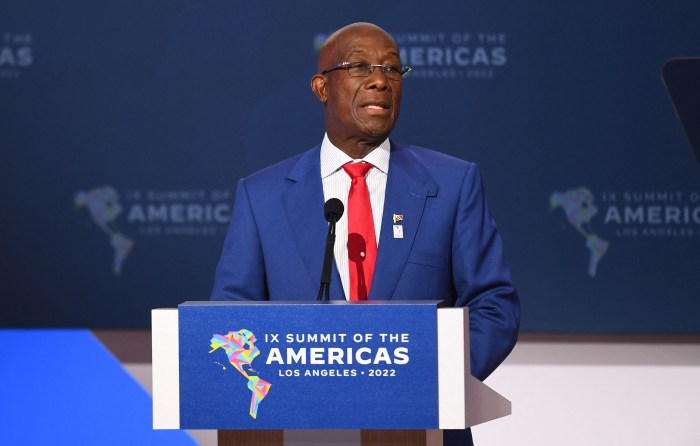As was the case in the run-up to general elections almost a year ago, voters have turned against eccentric former Prime Minister Patrick Manning, this time not to kick him out of government but to dramatically defeat a controversial motion he had brought to the house to have his attorneys participate fully in a parliamentary disciplinary hearing in which he will be the defendant.
When the vote was called on a sunny mid-Friday afternoon session of the 41-seat parliament in Port of Spain, Trinidad, seven of Manning’s colleagues either abstained or bailed from the chamber, humiliating the former head of government and ex-leader of the People’s National Movement (PNM) in a manner that suggests that his career as a politician is almost at an end.
Parliamentary rules allow for the assembly to govern itself and so when Manning sought to have his private attorneys “address and examine” witnesses during disciplinary hearings in which he will be the accused, legislators from both sides balked at the idea because this has traditionally just not been allowed.
The vote was therefore called just minutes after Manning had told the house that he was confident of support from opposition colleagues but as it turned out, he was left licking his wounds after five of the people he had worked with for decades abstained from supporting him, while two left the chamber and returned immediately after voting was done, clearly indicating they wanted no part of the proceedings. Four others hesitatingly voted yes.
As expected, 27 lawmakers on the government side voted ‘no’ and then watched in awe — Prime Minister Kamla Persad-Bissessar among them, as Manning was left on his own, embarrassed, confused and humiliated by the stunning developments minutes after expressing confidence he would get support.
The PNM had earlier advised Manning on a course of action in pitching the motion that would have triggered its support but as has been the case in his long political life, he dismissed all the advice and moved to have his own way.
The result is that Friday’s voted has more than confirmed persistent media reports about a massive split in the once powerful party that has ruled and gas-rich twin island republic for all but a decade since independence from Britain in 1962. It now appears that the party is as weak a political force as the mid ‘90s when it had only three of the 36 seats in the old parliament that now comprises 41 constituencies.
The PNM has 11 of the 41 seats. Critics say the PNM will eventually have to deal with the Manning factor as it seeks to rebuild in time for the next general elections. Persad-Bissessar says the country can do without a weak opposition.
“There may be implications for the democracy and the functioning of the democracy, because it is well respected by all that you need a strong opposition to keep the government in check.”
Marlene McDonald the PNM’s chief whip said her former boss simply refused suggestions from the party on how to tackle the motion, leaving them with no point but to leave him on his own.
“The caucus asked me to communicate this to Mr. Manning. I did and he refused,” McDonald said. “Our position was that we will abstain. That is exactly what we did. That was PNM’s position,” she said of the legislator from the legendary southern town of San Fernando.






















